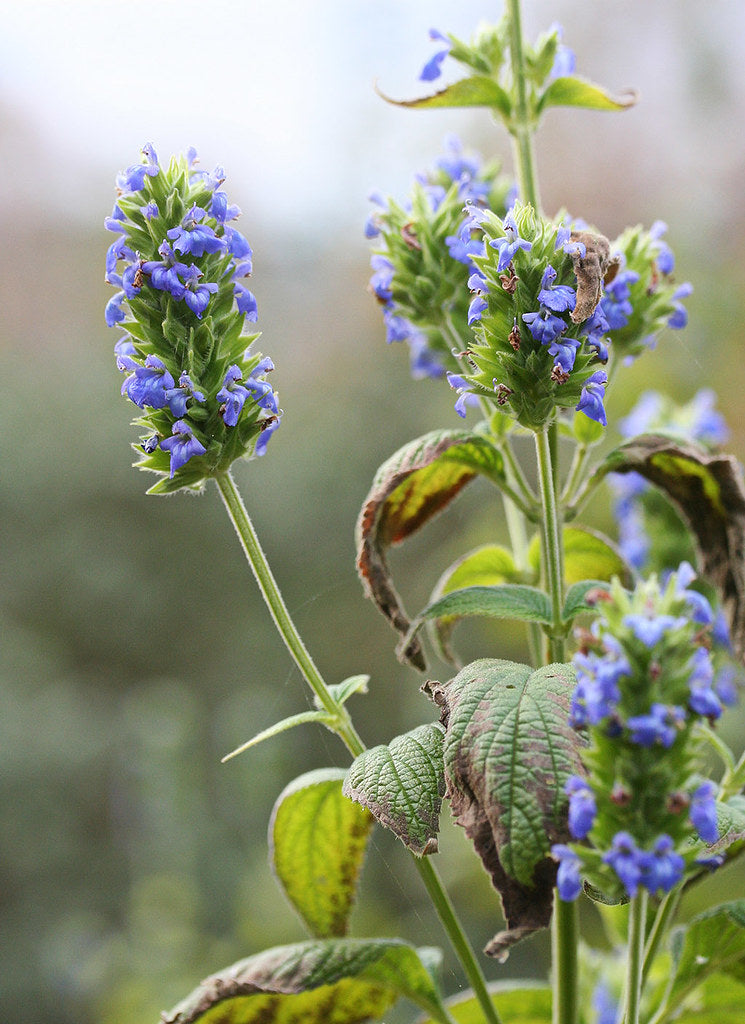
What Are Chia Seeds and Why Are They Good for You?
Share
Chia seeds have gained popularity in recent years as a superfood with impressive nutritional benefits. These tiny seeds are often seen in smoothies, puddings, and fibre supplements—and for good reason. Packed with nutrients and offering a wide range of health benefits, chia seeds are a versatile and valuable addition to any diet. In this post, we’ll explore what chia seeds are, how they’re grown and harvested, their nutritional profile, health benefits, safety considerations, and why they’re an excellent ingredient in fibre supplements.
What Are Chia Seeds?
Chia seeds are the edible seeds of Salvia hispanica, a flowering plant in the mint family that is native to Central and South America. They were a staple food for ancient civilisations like the Aztecs and Mayans, who valued them for their energy-boosting properties. In fact, the word "chia" means "strength" in the Mayan language.
Today, chia seeds are prized for their impressive nutritional profile and ability to absorb liquid, forming a gel-like texture that makes them useful in both culinary and health applications.
How Are Chia Seeds Grown and Harvested?
- Cultivation: Chia plants thrive in warm, subtropical climates and are typically grown in countries like Mexico, Argentina, and Bolivia.
- Flowering: The plants produce clusters of small purple or white flowers, which eventually develop into seed pods.
- Harvesting: Once the plants mature, the seed pods are harvested and dried.
- Cleaning & Sorting: The seeds are separated from the pods, cleaned, and sorted to ensure a high-quality product.
Nutritional Profile of Chia Seeds
Chia seeds are nutrient-dense, offering a rich source of essential nutrients in a small package. Here’s a closer look at their key nutritional components:
- Fibre: A single tablespoon of chia seeds contains around 5 grams of fibre, primarily soluble fibre, which promotes gut health and regularity.
- Omega-3 Fatty Acids: Chia seeds are one of the richest plant-based sources of alpha-linolenic acid (ALA), an essential omega-3 fatty acid that supports heart and brain health.
- Protein: Chia seeds provide a complete protein, containing all nine essential amino acids.
- Minerals: They are high in calcium, magnesium, phosphorus, and manganese, which support bone health and metabolic functions.
- Antioxidants: Chia seeds contain powerful antioxidants that help protect the body from oxidative stress and inflammation.
Health Benefits of Chia Seeds
-
Supports Digestive Health
The high fibre content of chia seeds, particularly soluble fibre, helps to promote regular bowel movements and improve stool consistency by forming a gel-like substance when mixed with water. -
Boosts Heart Health
The omega-3 fatty acids in chia seeds have been shown to reduce inflammation, lower blood pressure, and improve cholesterol levels, all of which contribute to better cardiovascular health. -
Promotes Satiety and Weight Management
Chia seeds can absorb up to 12 times their weight in water, expanding in the stomach and promoting a feeling of fullness. This may help reduce overall calorie intake and support weight management. -
Supports Bone Health
With high levels of calcium, magnesium, and phosphorus, chia seeds contribute to maintaining strong and healthy bones, making them an excellent plant-based source of bone-supporting nutrients. -
Helps Stabilise Blood Sugar
Chia seeds can slow the digestion and absorption of carbohydrates, leading to more stable blood sugar levels and reduced insulin spikes after meals.
Addressing Common Concerns
Are Chia Seeds Safe?
Yes, chia seeds are generally safe for most people and have been consumed for centuries without issue. They are naturally gluten-free, making them suitable for individuals with coeliac disease or gluten sensitivity.
Potential Side Effects
While chia seeds are well-tolerated by most, consuming them without enough water may cause:
- Digestive Discomfort: Due to their high fibre content, some individuals may experience bloating or gas when first introducing chia seeds to their diet.
- Choking Hazard: Because they absorb a large amount of water, chia seeds should be mixed with liquid before consuming to prevent the risk of choking.
To avoid these issues, it’s best to start with a small amount and gradually increase your intake, ensuring you drink plenty of water. The Gut Tailor's Fibe Plan will gradually increase chia seeds in your diet.
Why Chia Seeds Pair Well in a Fibre Supplement
Chia seeds are an ideal ingredient in fibre supplements due to their unique properties and nutritional benefits:
- High Soluble Fibre Content: Chia seeds provide a significant amount of soluble fibre, which helps to regulate bowel movements and feed beneficial gut bacteria.
- Water Absorption: Their ability to absorb liquid and form a gel enhances the texture and hydration properties of fibre supplements, promoting digestive comfort.
- Omega-3 and Antioxidant Boost: Unlike many other fibre sources, chia seeds offer additional health benefits, including heart health support and antioxidant protection.
- Synergistic Effects: When combined with other fibres like psyllium husk, flaxseed, and green banana flour, chia seeds contribute to a well-rounded blend of soluble, insoluble, and prebiotic fibres that work together to support gut health, satiety, and overall well-being.
Final Thoughts
Chia seeds are a nutritional powerhouse, offering a wealth of health benefits in a tiny, versatile package. Their high fibre content, omega-3 fatty acids, and essential minerals make them a valuable addition to fibre supplements like The Gut Tailor Fibre Plan.
